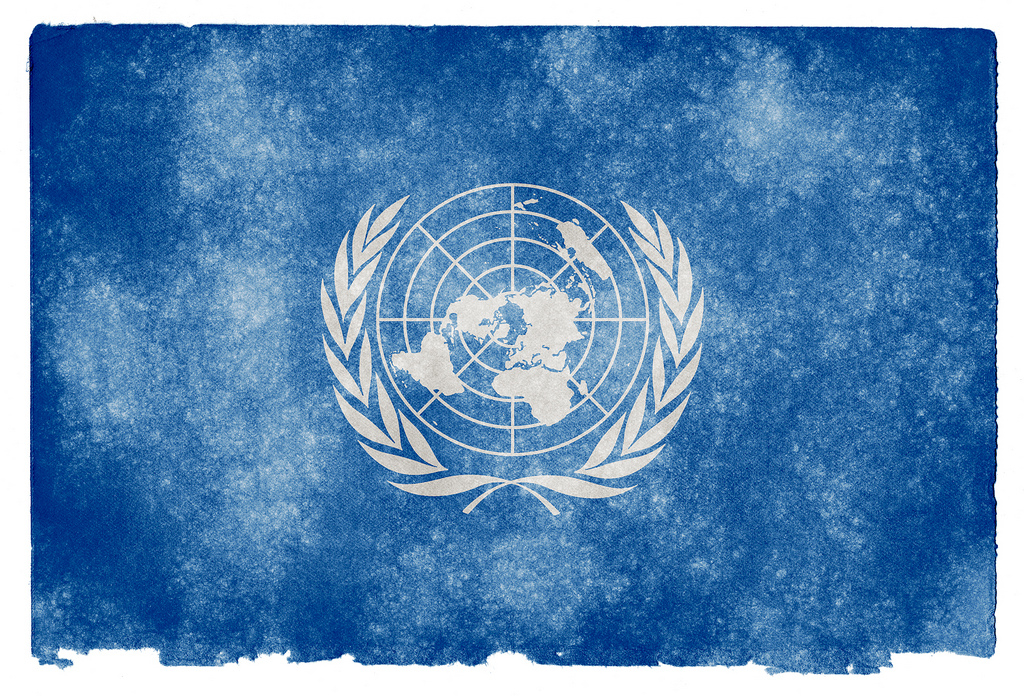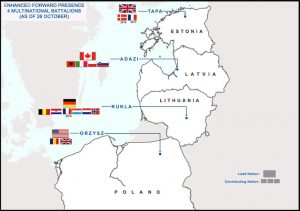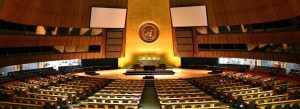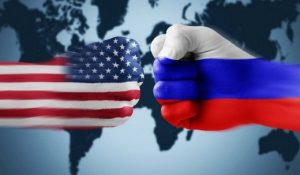
Views: 97
An idea of effective collective security is the foundation of the Organization of the United Nations (OUN). Fundamentally, collective security has to be a system to protect global peace and security through the common agreement and activity of all nations. Therefore, the focal idea of the concept of collective security is to institutionalize a permanent arrangement of the balance of power in which the whole international community has to agree to oppose any armed aggression by any member state. The very theoretical logic of the concept of collective security is double: 1) No state can stand up to all of the other member states of the system together; and 2) The military aggression will be consequently permanently deterred. However, in practice, it became impossible to apply this logic to the post-WWII nuclear Great Powers, especially to those two of them called Superpowers. Furthermore, five Great Powers with a permanent veto right in the OUN SC have been self-protected likewise their regional clients (for instance, Israel).
Nevertheless, there are extremely required necessary conditions for collective security:
- All member states must accept the status quo sufficiently in order to renounce the use of force for any purpose other than for the very purpose of defense of their own borders and territory.
- All member states have to reach an agreement about a clear legal definition of the act of aggression in order to avoid a particular self-individual explanation of aggression so that practical paralysis can be avoided if the case of aggression happens.
- All member states, but particularly the Great Powers, have to be willing to commit their own armed forces and funds to prevent aggression even in the case if it is remote from or opposed to, their immediate national interests. However, another solution is to establish, pay for, and find means of controlling, an international armed force to deal with the prevention of the act of aggression.
- All member states have to prevent actively any breaches of sanctions that might assist the declared outlaw.
As it is known, attempts by the League of Nations to effectively implement the concept of collective security failed because of the inability to meet all of these conditions. The OUN SC is a mechanism for collective security. On one hand, its operation in 1991 against Iraq’s invasion of Kuwait (its former historical territory separated from Iraq by the Brits at the very turn of the 20th century) is usually seen by Westerners as a good instance of successful implementation of the concept of collective security. However, on the other hand, NATO’s military intervention against the Federal Republic of Yugoslavia in 1999 without permission from the OUN SC can be understood as a good example of classic military aggression against a sovereign state.
The OUN’s Charter model of both democracy and global politics recognizes that the world community consists of sovereign states, connected through a dense network of different relations. The model defends single persons and groups who are regarded as legitimate actors in IR. Peace and peaceful collective cohabitation are the ultimate political goals of the model which can be achieved by worldwide democracy. The OUN immediately after its creation in 1945 recognized that certain peoples are oppressed by colonial powers, or racist regimes of foreign occupants and, therefore, they are assigned rights of recognition and a determinate role in articulating their future and interests. Consequently, a new type of war started in Africa and Asia – the Identity war. That is a war in which the quest for cultural regeneration, expressed by the demand that a people’s collective identity is publicly and politically recognized, became a primary cause for conflict. Nevertheless, the OUN placed restrictions on the resort to force, including the unwarranted use of economic force or sanctions.
The creation of new rules, procedures, and institutions was designed to aid law-making and law enforcement in international affairs with the final security purpose to avoid conflicts and especially wars. There was the adoption of legal principles delimiting the form and scope of the conduct of all members of the international community which provided a set of guidelines for the structuring of international rules and behavior. It was as well as expressed fundamental concern for the rights of individuals, and the creation of a corpus of international rules seeking to constrain states to observe certain standards in the treatment of all citizens. The preservation of peace, the advancement of human rights, and the establishment of greater social justice became proclaimed as collective priorities. Public affairs now included the whole of the international community. With respect to certain values such as peace and the prohibition of genocide, international rules within the umbrella of the OUN’s Charter and law now provide, in principle, for the personal responsibility of state’s officials and authority in general and the attribution of criminal acts to states including different types of war crimes.
The OUN recognized the systematic inequalities among peoples and states accepting the concept of the “common heritage of mankind” (UNESCO). Nevertheless, it would be quite misleading to conclude that the era of the OUN Charter model simply displaced the Westphalian logic of both IR and international governance. I would claim that the essential reason for such a standpoint is that the OUN Charter framework represents, in many respects, an extension of the former pre-WWII interstate system of IR. The OUN was designed partly to overcome weaknesses in the former League of Nations, but as well as to accommodate the international power structure as it was understood in 1945. Nevertheless, the OUN Charter system of IR including dealing with war and warfare and taking into consideration the practice of the veto rights in the OUN SC is, in fact, and unfortunately, democratically wrapped and dressed the old Westphalian Order in IR.
As a matter of fact, the division of the globe into powerful nation-states, with distinctive sets of geopolitical interests, is built into the OUN Charter conception in 1945. As a result, the OUN is virtually immobilized as an autonomous actor on many pressing issues. Manifestation of this is the special veto power accorded to the five permanent members of the OUN SC (the UK, the USA, the USSR/Russia, France, and China). This privileged political status added authority and legitimacy to the position of each of the major Great Powers. The five veto power states are, therefore, protected against censure and sanctions in the event of unilateral military action in the form of their veto. They have the right to unilateral strategic state initiatives if they were necessary for self-defense.
The OUN’s submission to the agendas of the most powerful states is reinforced by its dependence on finance provided by its member states. In sum, the OUN’s Charter model of IR, despite its good intentions, failed effectively to generate a new principle of organization in the international order – a principle which might break fundamentally with the logic of the Westphalian Order and generate new democratic mechanisms of political coordination. However, the OUN’s Charter system is distinctively innovative and influential in a number of respects. It has provided, nevertheless, an international forum in which all states are in certain respect equal. Such a forum is of particular value to third-world countries and to those seeking a basis for consensus solutions to international problems for the sake to avoid military conflicts.
Finally, it has not to be forgotten that the OUN’s Charter has provided a general framework for decolonization, and for the pursuit of the reform of international economic institutions. It provided also a vision of the new world order and IR based upon a meeting of governments and of supranational presence in world affairs championing human rights and trying to prevent military actions across the globe.
Ex-University Professor
Research Fellow at Centre for Geostrategic Studies
Belgrade, Serbia
www.geostrategy.rs
sotirovic1967@gmail.com
© Vladislav B. Sotirovic 2023
Personal disclaimer: The author writes for this publication in a private capacity which is unrepresentative of anyone or any organization except for his own personal views. Nothing written by the author should ever be conflated with the editorial views or official positions of any other media outlet or institution.
Origins of images: Facebook, Twitter (X), Wikimedia, Wikipedia, Flickr, Google, Imageinjection, Public Domain & Pinterest.
Read our Disclaimer/Legal Statement!
Donate to Support Us
We would like to ask you to consider a small donation to help our team keep working. We accept no advertising and rely only on you, our readers, to keep us digging the truth on history, global politics, and international relations.
FOLLOW US ON OUR SOCIAL PLATFORMS












